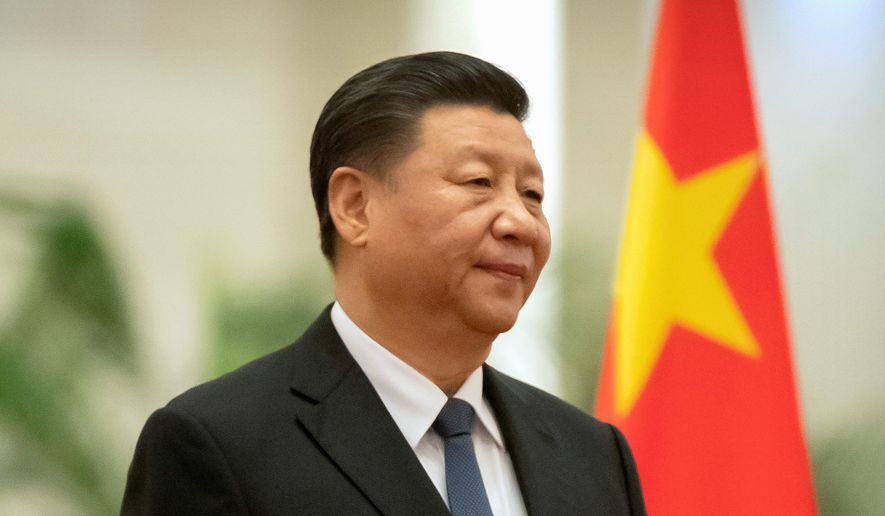China announced sanctions Monday against several Republican lawmakers and a slate of human rights experts who’ve spoken out against the harsh new national security law that Beijing’s recently imposed on Hong Kong.
The sanctions come amid a widening push by Beijing to assert authoritarian control over Hong Kong — a push that saw Chinese authorities on Monday arrest independent media tycoon Jimmy Lai, the founder of a pro-democracy newspaper in the semi-autonomous financial hub.
Mr. Lai remained in custody Monday night amid frustration in Washington, where lawmakers sought to downplay the significance of the sanctions being leveled against them by Beijing.
Those targeted include Republican Sens. Ted Cruz of Texas, Marco Rubio of Florida, Tom Cotton of Arkansas, Josh Hawley of Missouri, and Pat Toomey of Pennsylvania, and Rep. Chris Smith, New Jersey Republican.
Five U.S.-based human rights advocates were also sanctioned, including National Endowment for Democracy President Carl Gershman, National Democratic Institute President Derek Mitchell, International Republican Institute President Daniel Twining, Human Rights Watch Executive Director Kenneth Roth, and Michael Abramowitz, president of Freedom House.
Chinese authorities did not specify precisely what the sanctions entail beyond apparently banning travel to China by those targeted. Chinese foreign ministry spokesman Zhao Lijian said at a press briefing that the sanctions were being leveled “in response to that wrong U.S. behavior.”
“China has decided to impose sanctions on individuals who have behaved egregiously on Hong Kong-related issues,” Mr. Zhao said, alleging that the U.S. has “blatantly intervened in Hong Kong affairs, grossly interfered in China’s internal affairs, and seriously violated international law.”
Mr. Rubio, Mr. Cruz and Mr. Smith have all previously been targeted by China. Last month, Beijing announced a travel ban on them in response to penalties the U.S. had placed on three senior Chinese Communist Party officials for alleged human rights abuses against ethnic and religious Muslims that Beijing has detained in the western part of China. Beijing denies such abuses are occurring.
“Last month #China banned me. Today they sanctioned me,” Mr. Rubio tweeted in a tongue-in-cheek message Monday. “I don’t want to be paranoid but I am starting to think they don’t like me.”
The latest round of tit-for-tat penalties amid heightened tensions between Washington and Beijing, tensions that have recently come to include disagreement over Hong Kong.
In May, China’s parliament approved a strict “national security law” on Hong Kong to allow Chinese intelligence and security forces to be based inside the financial hub for the first time. Beijing has said the law seeks to address terrorism, secession and foreign interference in the city.
Critics, however, argue that it will impede the autonomy granted to Hong Kong under a 1997 treaty between Britain and China that bound Beijing’s communist rulers to respect Hong Kong as a special administrative region and to leave its liberal economy and government alone for 50 years under the formulation “one country, two systems.”
With that as a backdrop, Monday’s arrest of Mr. Lai in Hong Kong triggered sharp rebukes in Washington.
Senate Majority Leader Mitch McConnell, Kentucky Republican, condemned the arrest and said Mr. Lai has “devoted much of his life to advancing precisely the sort of values that the CCP finds most repulsive — the freedom of thought and the freedom of speech.”
A spokesperson for Mr. Cruz told The Washington Times that “the Chinese Communist Party thinks that it can distract from its crackdown on Hong Kong, including the arrest of freedom fighter Jimmy Lai, by re-announcing sanctions against Sen. Cruz that were already not credible to begin with. It won’t work.”
In a separate development Monday, Taiwan claimed that China briefly deployed two fighter jets across the midline of the Taiwan Strait shortly ahead of U.S. Health and Human Services Secretary Alex M. Azar II visit with Taiwanese President Tsai Ing-wen. Mr. Azar’s trip marks the highest-level visit to the island by a U.S. official since 1979.
• Lauren Toms can be reached at lmeier@washingtontimes.com.




Please read our comment policy before commenting.